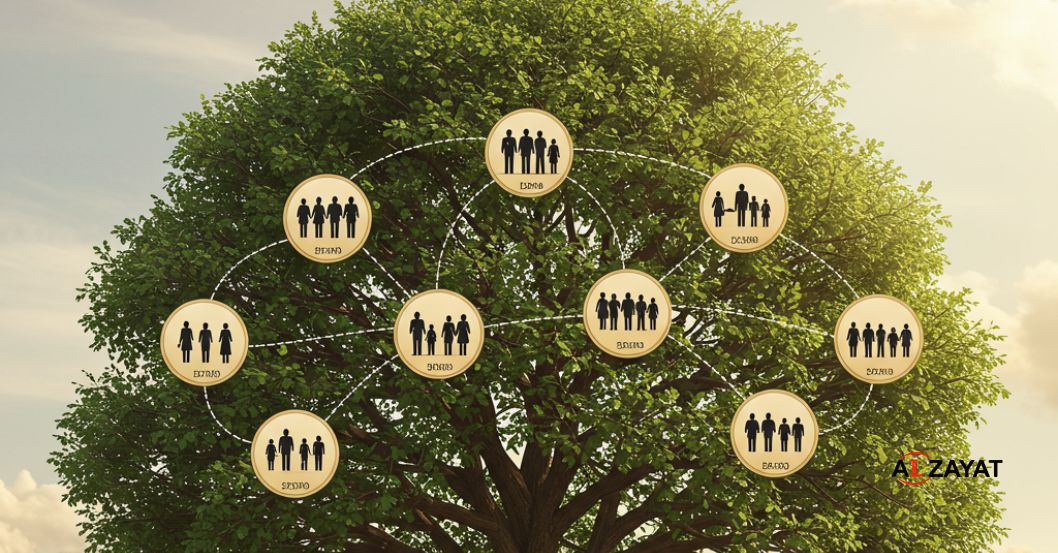A Definitive Guide to Working with Egypt Estate Planning Solicitors
Egypt estate planning solicitors play a crucial role in protecting your assets and ensuring your legacy is transferred according to your wishes. Estate planning is not just for the wealthy; it is an essential process for anyone who owns assets in Egypt, including property, business shares, or bank accounts. The country’s unique legal system, which blends the Egyptian Civil Code with principles of Islamic Sharia, makes professional legal guidance indispensable. At Alzayat Law Firm, our team of expert solicitors specializes in creating robust estate plans that navigate these complexities with precision.
Why Proactive Estate Planning in Egypt is Essential
Proactive planning is the only way to maintain control over your assets after you are gone. Without a formal plan, you risk leaving behind a legacy of confusion, family disputes, and costly legal battles. A comprehensive estate plan provides clarity and peace of mind. Furthermore, it ensures the financial security of your loved ones. Engaging experienced Egypt estate planning solicitors allows you to formalize your intentions and protect your family from uncertainty.
Core Components of a Comprehensive Egyptian Estate Plan
An effective estate plan is more than just a single document. It is a collection of legal instruments and strategies designed to work together. Our solicitors focus on several core components.
Drafting a Legally Compliant Will
A will is the cornerstone of any estate plan. It outlines how you wish for your assets to be distributed. However, in Egypt, a will’s power is subject to strict legal limitations. For Muslim individuals, the mandatory inheritance shares prescribed by Sharia law take precedence. This means a will cannot override the fixed portions allocated to designated heirs (like children and spouses). For non-Muslims, there is greater flexibility, but the will must still be validated by an Egyptian court. Therefore, drafting a will that is both clear and compliant is a primary task for Egypt estate planning solicitors.
Structuring Asset Ownership and International Considerations
For those with international ties, the complexity increases. Our work in cross-border inheritance for dual nationals often involves structuring asset ownership to streamline future transfers. While concepts like trusts are less common in Egyptian civil law than in common law systems, corporate structures can be used to hold assets. This can simplify the inheritance process significantly. Expert advice is also crucial for navigating foreign tax liabilities, a service you can learn more about in our guide to managing a cross-border inheritance.
The Role of Your Egypt Estate Planning Solicitor
Your solicitor is your strategic partner in this process. Their role extends far beyond just drafting documents. A skilled solicitor will:
- Provide tailored advice on how Egyptian law will apply to your specific family and asset structure.
- Draft a will that maximizes your wishes while remaining fully compliant with local laws.
- Advise on appointing a capable executor to administer the estate.
- Assist with the court procedures required to obtain a Declaration of Heirs after a death.
- Offer strategies for minimizing potential tax liabilities, such as capital gains and stamp duties.
Ultimately, the goal of your Egypt estate planning solicitors is to create a seamless and conflict-free transition of your legacy. For further academic context on international succession, resources from the Hague Conference on Private International Law (HCCH) are invaluable.

A comprehensive estate plan protects your family’s future and ensures your legacy is handled according to your wishes
Frequently Asked Questions
-
1. What happens if I die in Egypt without any estate plan?
- If you die without a will (intestate), the entirety of your estate located in Egypt will be distributed strictly according to the mandatory rules of Egyptian law. For Muslims, this means the fixed shares defined by Sharia are applied. Your personal wishes or informal promises will have no legal standing, which can lead to unintended outcomes for your loved ones.
-
2. Can I use my will from the UK, USA, or another country for my assets in Egypt?
- Yes, a foreign will can be submitted to an Egyptian court. However, it must be legalized, translated into Arabic, and then presented for validation. Crucially, the court will not enforce any clause that contradicts mandatory Sharia inheritance shares if the deceased was Muslim. The foreign will can only govern the portion of the estate not subject to these fixed rules.
-
3. Is it possible to disinherit a child or spouse in an Egyptian will?
- For Muslim estates, no. Children and spouses are mandatory heirs under Sharia law and are legally entitled to their prescribed shares. Any part of a will that attempts to disinherit them will be considered void by the court. Non-Muslims have more freedom but must still be mindful of Egyptian public order rules.
-
4. How does estate planning help with my business assets?
- Effective planning is critical for business continuity. Your Egypt estate planning solicitors can help draft or amend shareholder agreements to create a clear succession plan. This can define what happens to your shares, whether other partners can buy them out, and who is eligible to take on a management role, thereby preventing disputes and operational disruption.
-
5. Does Egypt have an inheritance tax or death duties?
- No, Egypt abolished its formal inheritance tax. However, this does not mean the process is free of costs. The estate will still be subject to court fees, legal fees, and potential taxes related to the transfer or sale of assets, such as stamp duty on real estate or capital gains tax. The International Finance Corporation provides data on the costs of doing business and transferring property in various jurisdictions.
To protect your family and assets, schedule a consultation with our expert Egypt estate planning solicitors today.

